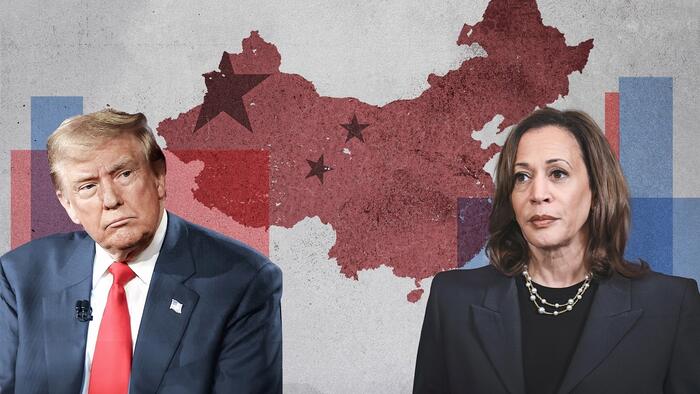The upcoming presidential election in the United States is poised to witness significant shifts in the country’s relationship with China, a nation perceived by many as a strategic adversary seeking to disrupt the current global order dominated by American leadership. Recent polling from the Pew Research Center indicates that a substantial majority of Americans—80%—have an unfavorable view of China. In the backdrop of rising tensions, both political parties in Washington have come to a consensus about the perceived threat from the Chinese regime as it closes the gap with the United States across military, diplomatic, and technological fronts. The strategy towards China has evolved notably since former President Donald Trump characterized the nation as a “strategic competitor.” His administration adopted more hawkish stances by imposing tariffs on Chinese goods, restricting technology transfers, and shifting national security priorities towards countering China’s assertiveness.
The Biden administration has largely continued this tough stance, albeit with its own nuances. As both Trump and Democratic nominee Kamala Harris prepare for the upcoming election, their respective strategies towards China will differ, influenced by their distinct views and cabinet selections. On trade issues, both candidates agree on the necessity of controlling the flow of strategic goods and technologies from China while also promoting domestic innovation and reshoring supply chains. Harris has reiterated the stance that America must prevail in the global competition against China. Under Biden’s latest trade policies, tariffs established during the Trump administration remain in effect, with some rates increased for essential technologies. Trump, anticipating a possible return to office, has signaled intentions to escalate trade tensions further, proposing the revocation of China’s permanent normal trade relations status amidst public criticisms that China has not honored its trade commitments under previous agreements.
A key point of divergence between the two candidates lies in their approaches to decoupling the American and Chinese economies. While Trump advocates for a more aggressive separation to safeguard American interests, Harris prefers a strategy termed “derisking,” aiming to mitigate reliance on China without entirely severing economic ties. Experts suggest that decoupling is already underway but emphasize that the pace and methodology of future strategies will be critical indicators of how a prospective Harris administration might diverge from Biden’s policies. Analysts expect that any initiatives from Trump will be aggressive and firmly rooted in his campaign’s stated goals to ensure compliance from China.
In matters of national security, there is a recognized consensus in Washington about countering Chinese aggression, especially concerning its activities in the Indo-Pacific. However, differences are evident in the methodologies proposed by Trump and Harris. Trump’s administration has historically emphasized military strength as a deterrent, prioritizing nuclear modernization and maintaining a robust arsenal, features he believes are essential for U.S. security. On the contrary, Biden’s administration has focused on a more restrained approach, with plans that include altering nuclear policy and reallocating defense budgets towards infrastructure and community needs. Despite their differing philosophies, both candidates consider the Indo-Pacific a strategic priority, albeit with differing assessments of the threats posed by concurrent international conflicts, such as the Russia-Ukraine war.
With the Biden administration committed to supporting Ukraine, there has been concern about how limited military resources could affect American commitments in East Asia, particularly regarding Taiwan’s security against potential Chinese maneuvers. Biden’s verbal assurances of protecting Taiwan remain intentionally ambiguous, oscillating between firm promises and strategic vagueness. Trump has also stirred controversy by suggesting that Taiwan should financially contribute to its defense but is nonetheless credited for fostering stronger ties with Taiwan during his presidency. The comparative approach to Taiwan is a crucial aspect of how both candidates may define and execute U.S.-China relations moving forward.
In summary, as the U.S. approaches its next presidential election, candidate strategies toward China and broader national security concerns will play a pivotal role in shaping American foreign policy for years to come. With rising public sentiment against the Chinese regime and bipartisan recognition of the need for a robust response to Chinese aggression, how candidates translate these sentiments into actionable policies will significantly impact not only U.S.-China relations but also global geopolitics. Whether through a more isolationist economic decoupling approach under Trump or Harris’s focus on strategic engagement and risk management, the next president will inherit a complex geopolitical landscape that demands both foresight and delicacy in handling relations with one of the U.S.’s most formidable global competitors.

